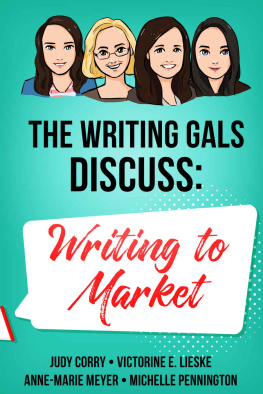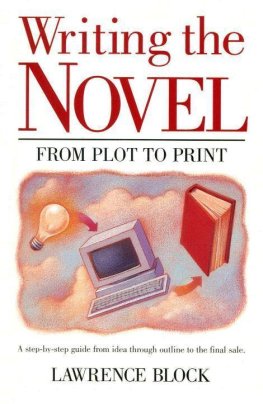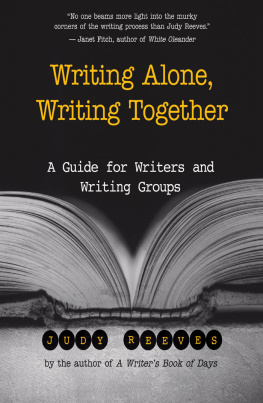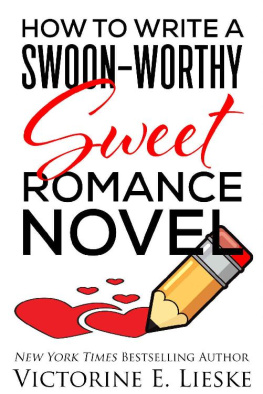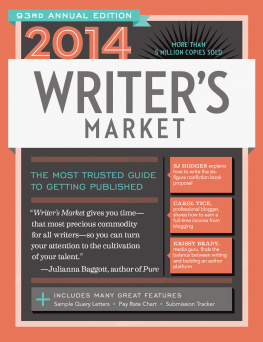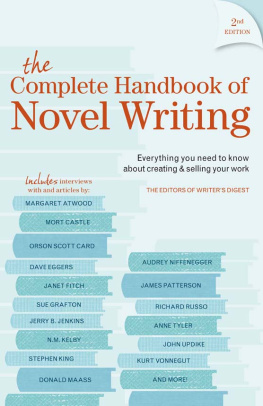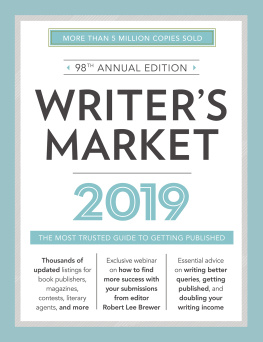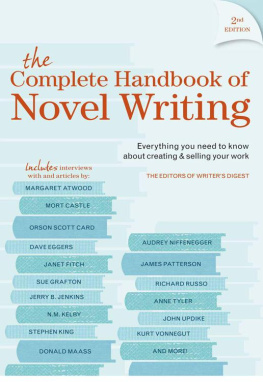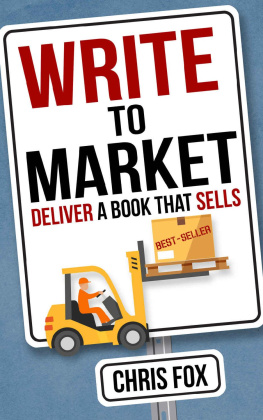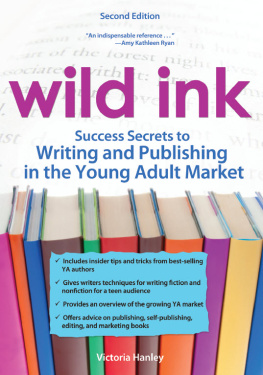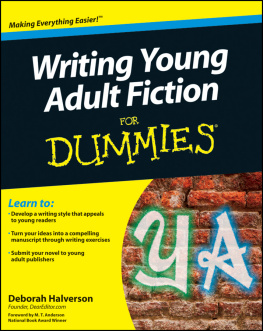Copyright 2020 by Judy Corry, Victorine Lieske, Anne-Marie Meyer, Michelle Pennington.
All rights reserved.
No part of this book may be reproduced in any form or by any electronic or mechanical means, including information storage and retrieval systems, without written permission from the author, except for the use of brief quotations in a book review.
Introduction to Writing to Market
What does Writing to Market mean?
ANNE-MARIE: It means writing with your readers in mind. Your readers are your market. I think we forget who is on the other side of the Kindle or paperback. Writing to market isnt what I think will sell or what the agent in New York thinks will sell. It is what your READER is looking for. When you write to market, you are writing to reader expectations. As an author, you need to know who is going to read your book and how you can capture as many readers as possible. You hear people say its writing in a clich way, but it is anything but that.
MICHELLE: Yes, only people who dont understand what it is will say its clich. Ive heard this on dozens of podcasts, in classes, and in books by industry professionals who should know better. They shake their heads wisely and say that to-market books are just recycled drivel copied from what is selling by people desperate to make a buck.
In fact, every time I hear people say, You should only write completely original stories that dont borrow or imitate from anything that came before if you want to be successful, I have to shake my head because they dont understand the concept or the sheer futility of chasing complete originality.
Writing to market requires you to understand what the consumer wants and then delivering it in a distinctive way that is all your own. Writing to market is not a barrier to writing something fresh and original. You can invite people into an experience you know they want and then elevate it into something more that is both distinctive and memorable. A reading experience like that is both satisfying and exciting. The familiar elements provide a comfort zone for them, and the unexpected elements tantalize their minds. The combination is difficult to achieve, but that is what will create hard-core fans.
VICTORINE: It really bothers me when people say that writing to market is lifeless and boring. They imply youll be making a carbon copy of whats already out there. As if there was a formula and you just plug in your characters names, and presto, youre done. Another lifeless book, ready for consumers. Do people really think that the market wants lifeless and boring stories? No way! Writing to market means you are writing something specifically for an audience. It means you know what your audience wants, and youre fulfilling that. No audience I know of wants lifeless, boring drivel. If thats what youre writing, then youll never find success.
JUDY: I totally agree with these ladies! What makes the books written to market is taking cues from the market and noticing which tropes are selling well in your specific genre. You can create any number of stories using the same tropes. Anne-Marie, Victorine, and Michelle all have book series that are based around a single trope (billionaires), but none of the stories are the same. Its the characters personalities and situations, theme, setting, and other events in the book that will make it stand out and be different from other books out there.
VICTORINE: And before you can hit your market expectations, you need to know what those are. Writing to market is all about knowing the market expectations and hitting them as you write. You are crafting a story that is well-told, gripping, and doesnt let the reader go.
Plus, youre giving them the satisfaction they crave from whatever genre youre writing in.
ANNE-MARIE: As a romance reader, I crave the romance. I get so frustrated or angry when Im watching a romance and I cant figure out who the love interest is. All I have to say is thank goodness for Google and super-fans who can tell me. But, on the other hand, that is exactly what you dont want to have happen. If someone is Googling who your love interests are, you might have a problem.
VICTORINE: Mystery readers crave that thing they cant figure out. Those clues that lead them to believe one thing, but in actuality its something different. You cant write a mystery without red herrings and still satisfy the reader. Every genre, every niche, has things like this that the reader must have in order to be happy. Your job is to find out what they are and give them to the reader. Thats where researching your market comes in.
ANNE-MARIE: Writing to market is a way you can show your reader what your book is about. Your reader is getting inundated by so many other books on a daily basis that you want to make your book and what the reader is going to get from it as clear as possible. If its confusing, they will just move on.
Its really a marketing strategy. What elements are you going to pull from your book and showcase in your ads, blurb, and cover that will signal to your market that this is a book they want to pick up? Also, you want to make sure you are hitting the market expectations. In a romance, there HAS to be a happily ever after. There cannot be a death of the main characters. That would make it a tragedy.
JUDY: And your readers will want to throw your book across the room.
ANNE-MARIE: Exactly. Not hitting those market expectations for the cover, blurb, and ad copy can result in a loss of sales while not hitting the market expectation for the genre will result in a loss of a lifelong reader.
JUDY: And that would be tragic because it is so much better to sell ten books to one reader than one book to ten different readers who never pick up a book from you again. Word of mouth is the best advertising you can get. Readers who fall in love with your book will tell their friends. That is a great way to build a fan base.
What does Writing to Market not mean?
MICHELLE: Writing to market does not mean taking a best-selling novel and regurgitating it with minor changes and different names. It does not mean taking your contemporary romance about a high school art teacher and a fireman and slapping Billionaire somewhere in the title because those are selling.
VICTORINE: Haha, billionaires. SO many billionaires! Some people call it a fad or a trend, but writing to market is not writing to trend. Even though billionaires are all over the place, there is a market for them. There has been a market for them for years and years. Its not a new thing. Go back to look at romances from the decades past. Youll find the rich protagonist over and over again. This is not a fad, but a tried-and-true trope.
MICHELLE: It also doesnt mean that you cant love what you are doing. You should be invested in your story and in love with your characters. If you are ever writing something because you think it will sell well, but dont actually care about your storydeeplystep back. Youre doing it wrong. Thats why the term selling out gets thrown around so much.
JUDY: This is so true! Readers can tell if you arent interested in what you are writing. Its just hard to hit all the right elements that the market is looking for when it isnt something you are passionate about. This is why it is so important to find a genre that you love to read, which is also popular in the marketplace, instead of writing in the best-selling genre that you dont personally read yourself.

